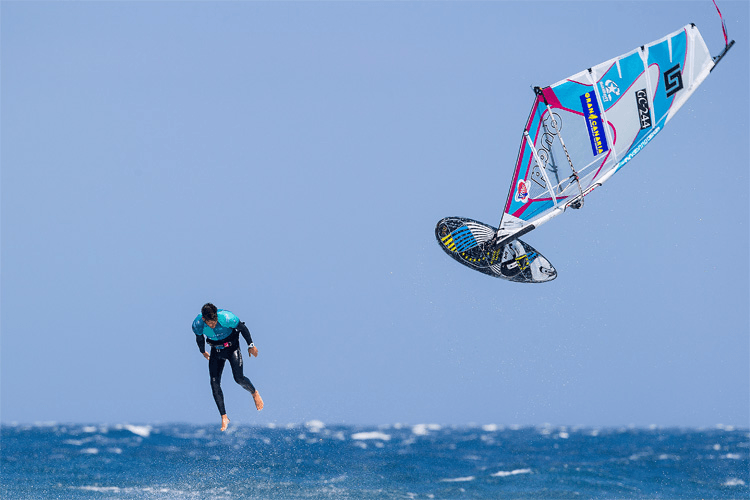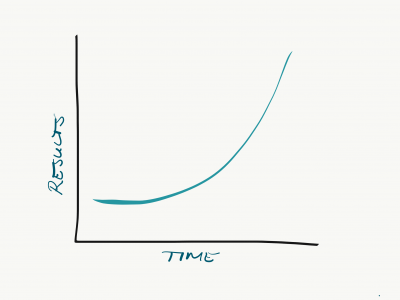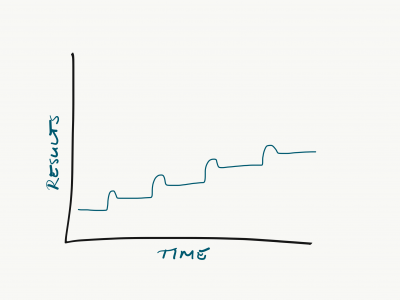
Get Time on the Board
11th Jul 2019I’ve been trying out a new windsurfing move lately. I’ve been windsurfing for so many years that you’d think I’ve have the sport nailed. But, no, not by a long shot! Windsurfing, especially in the waves, is super-technical. I reckon it’s one of those sports that you can never fully master. There’s always something more to learn. A next level to aspire to.
Anyway, this new move is something I’ve been working on for quite a few months. It requires strength, technique, and finesse all combining in perfect sync with a wave. My success rate at first was great. I pulled off a few moves on my first day trying. Now it’s settled down to around 50%. Yep, I expect to crash a lot when I try it! The good thing is, some of my mates are trying it too. It’s a good laugh feeling like numpties together!
Back in 1992, George Leonard wrote a wonderful little book called Mastery. What I love about this book is how he frames the process of attaining mastery. Leonard says it’s not something that looks like this:

Instead, it looks more like this:

In other words, when we try to learn something new, we usually get a peak of immediate improvement, then we plateau at a level slightly higher than where we were before. As we keep practicing, there’s no discernible improvement over time. And, then, almost suddenly, there’s another peak. All that hard work finally pays off.
I reckon this idea is one worth remembering. If we expect that quick fixes and quick hits are going to give us what it takes to develop as leaders, and as change makers, we’ll probably lose heart just as quickly. If we tell ourselves that it’s imperative we put the effort in, and it’s OK not to see change immediately, we’ll be more likely to stick with the work.
London Business School’s Professor Herminia Ibarra said in a 2015 interview about ‘Why Leadership Feels Awkward’ that “part of the learning process is just sticking with it long enough.” When you’re trying something new, the trick is to keep going.
To me, three elements can make sticking with it easier:
- A strong sense of conviction: when you’ve decided that it’s important enough to learn, it’s easier.
- The process is fun: enjoy the journey as well as the destination.
- Others are doing it with you: shared learning experiences are richer
At the end of the day, I know time on the board will help me nail this new move.
Are you putting in enough time on the board?
Photo Credit: Surfer Magazine
Like this post? When you’re ready, here are three ways I can help you further:
- Sign up to my ‘Thinking from the Edge’ newsletter to get tips, insights and early release information that I don’t share on the usual social channels. Delivered fortnightly to your inbox.
- Get my new book, Change Makers: How to make your mark with more impact and less drama. It’s availablenow.
- Come along to one of my Change Makers breakfast sessions to learn more about how this game-changing programme can amplify you and your people’s ability to have more impact.

